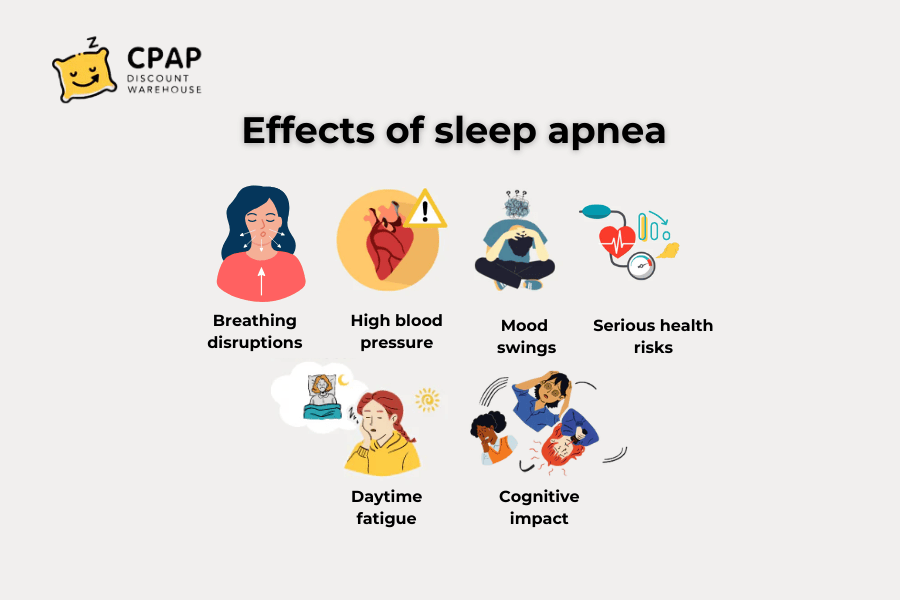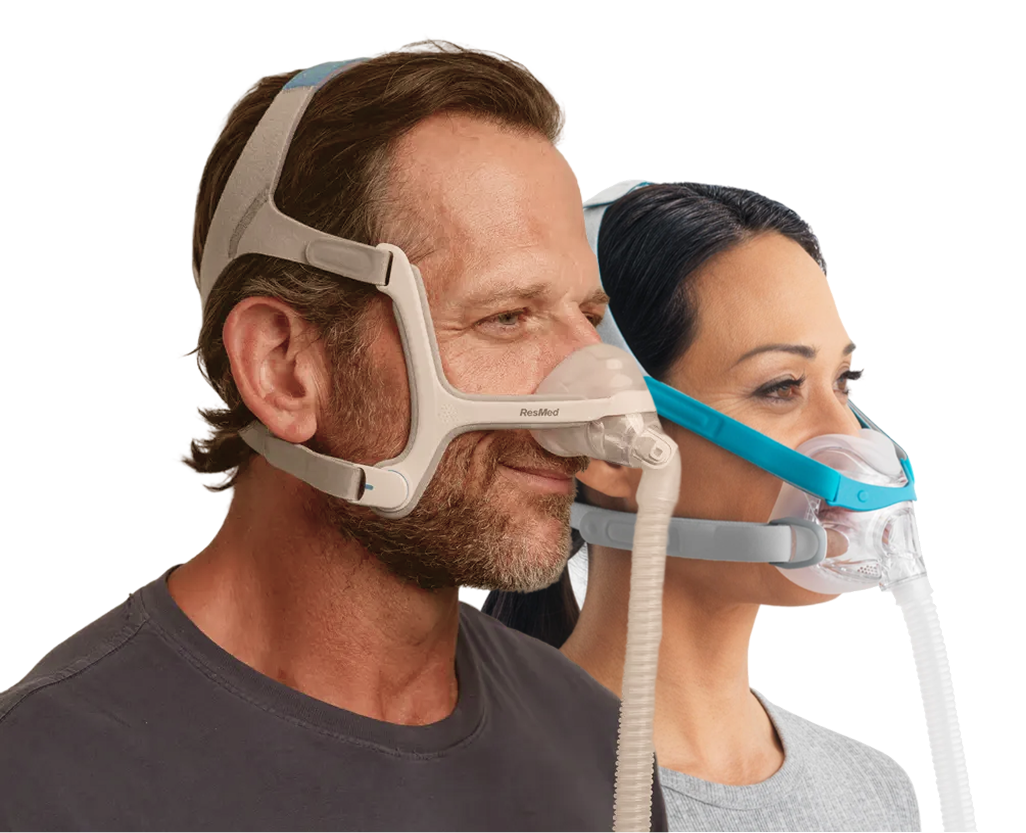CPAP therapy is a highly effective treatment option. The CPAP machine uses airflow sensors to detect your breathing patterns and record how often you breathe during the night. IThis device can detect any changes in sleep quality that may occur throughout the night. It does this by measuring resistance, oxygen levels, and breathing patterns. In this article, CPAP Discount Warehouse will explore the ins and outs of CPAP machines, including how they work and how to choose the right machine for optimal results.
What is a CPAP machine?
CPAP (Continuous Positive Airway Pressure) machines help treat sleep apnea by keeping the upper airway open using steady air pressure. They are effective for both obstructive sleep apnea (OSA) and central sleep apnea (CSA), depending on the condition's severity and the patient’s specific needs.
CPAP machines work by delivering a steady stream of pressurized air through a mask, which helps to keep your airway open while you sleep. This prevents the airway collapses and interruptions in breathing that are characteristic of sleep apnea, allowing you to enjoy a more restful night's sleep and reducing the risk of related health complications.
A CPAP machine typically consists of the following components:
+ Motor: The motor serves as the heart of the machine, creating the pressurized airflow.
+ Hose: This flexible tube connects the motor to the mask, delivering the air to your airway.
+ Mask: The CPAP mask, which comes in various styles and sizes, fits over your nose and/or mouth to provide a comfortable seal and deliver the pressurized air.
+ Filters: These help to keep the air clean by removing dust, allergens, and other particles.
+ Humidifier (optional): Some CPAP machines include a built-in humidifier, which adds moisture to the air, preventing dryness and irritation in your airway.

>>> Read more on: What is a CPAP Machine?
What does CPAP do when you stop breathing?
The CPAP device monitors breathing and ensures the correct air pressure. By measuring resistance, oxygen content, and breathing rate, this device can detect any changes in sleep quality that may occur during the night.
To eliminate airway collapse, air leaks from the CPAP mask, or other obstructions, the CPAP device can check for lower pressure and adjust it if necessary.
APAP devices, on the other hand, can measure a person's breathing pattern by monitoring three things:
+ 30 breaths with stable breathing (approximately 3 minutes)
+ 5 consecutive breaths with snoring
+ 3 obstructive apneas or hypopneas within 2 minutes
If any of the above events occur, the APAP device can gradually increase the airflow until the required level is reached.
What conditions is CPAP used for?
CPAP devices are used to treat obstructive sleep apnea. OSA causes brief pauses in breathing during sleep when the airways relax to the point of narrowing or closing completely. This can occur hundreds of times during the night, causing a lack of oxygen. Untreated sleep apnea increases the risk of developing the following conditions:
- Heart disease.
- High blood pressure.
- Stroke.
- Type 2 diabetes.
- Cognitive impairment.
- Untreated OSA can also increase the risk of car accidents while driving.
Using a CPAP device while sleeping keeps the airway open so you don't stop breathing. Sleep specialists use CPAP devices to treat other types of breathing problems. For example, they are used for premature babies in the neonatal intensive care unit (NICU) whose lungs are not yet fully developed.

What CPAP machine do i need?
Selecting the right CPAP machine can make all the difference in your therapy experience. Here are some factors to consider when choosing a device:
Prescription: Your sleep specialist will provide a prescription with specific pressure settings based on your sleep study results. Ensure the CPAP machine you choose is compatible with these settings.
Noise level: Look for a machine with a low noise rating, typically around 30 decibels or less, for a quieter sleep environment.
Features: Consider any additional features you may want, such as a built-in humidifier, ramp function, or pressure relief technology.
Mask style: Experiment with different types of CPAP mask (nasal pillows, nasal masks, or full-face masks) to find the one that best suits your comfort and fit preferences.
Portability: If you travel frequently, opt for a compact, lightweight machine that is easy to transport.

How to know when your CPAP air pressure should be altered?
If your airway collapses, air can leak from your CPAP mask or other parts. Your CPAP machine can test lower pressures and adjust them as needed. APAP machines, on the other hand, can measure a person's breathing patterns by monitoring three things:
+ Breathe in and out 30 times, about 3 minutes total.
+ The person snored five times in a row.
+ There were three apneas or hypopneas within two minutes.
If any of these things happen, an APAP machine can slowly increase your airflow until it reaches the level you need.
FAQs
What does a CPAP machine do to your lungs?
It is known that CPAP also increases lung volume. CPAP could therefore also prevent sleep apnea and hypopnea by increasing the stiffness of the upper airways through caudal traction of the trachea (due to increased lung volume).
How does a cpap know when you stop breathing?
Most modern CPAP machine can detect when you stop breathing (a condition called “apnea”) or when your breathing becomes shallow (a condition called “hypopnea”). CPAP devices recognize breathing patterns using airflow sensors and record the number of such events during the night. These events are usually summarized in a report that your doctor can check to assess the effectiveness of CPAP therapy. Event information can also be viewed on the screen of some CPAP devices and in Resmed's myAir app.
Can a CPAP cause health problems?
People who use CPAP machines may suffer from dry mouth or eyes due to mask leaks. Mask leaks can occur when air enters through the nose and exits through the mouth. CPAP users who are unable to keep their mouths closed against the machine or who breathe through their mouths while sleeping may suffer from dry mouth.
Conclusion
CPAP therapy has proven to be a life-changing solution for people with sleep apnea and related breathing disorders. From improved energy levels and cognitive function to better cardiovascular health and overall quality of life, the benefits of CPAP therapy cannot be overstated. If you or a loved one is struggling with sleep apnea, don't hesitate to explore CPAP therapy as a potential solution. CPAP Discount Warehouse will accompany you to discover CPAP therapy for a healthier, happier life.






